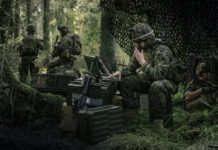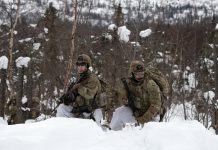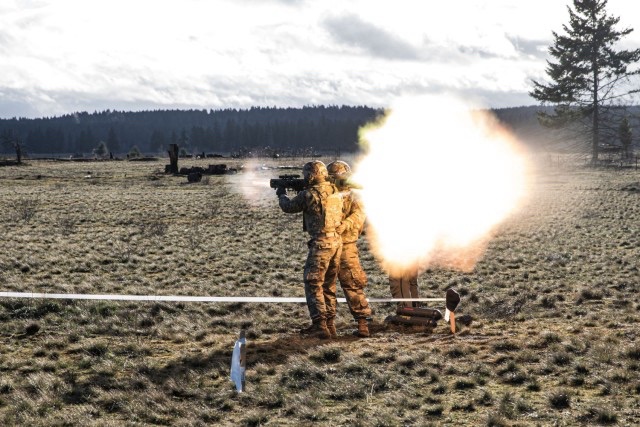
JOINT BASE LEWIS MCHORD, Wash. — Washington and Oregon National Guard Soldiers with the 81st Stryker Brigade Combat Team and 96th Troop Command started the new year with a bang by conducting new weapons training and fielding on Camp Murray and Joint Base Lewis-McChord Jan. 16-17.
The training began with classroom instruction on Camp Murray. The weapons being introduced were the M110A1 Squad Designated Marksman Rifle, MK22 Precision Sniper Rifle and the M3 Multi-Role Anti-Armor Anti-Personnel Weapon System.
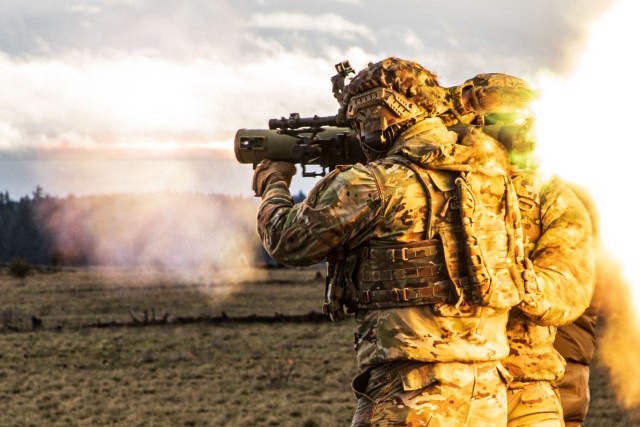
Soldiers focused on the weapons systems’ functions, safety and maintenance. The next day, they brought their weapons to the rainy ranges of JBLM for some hands-on training.
The M110A1 SDMR enables infantry, scout and engineer squads to engage enemies as far as 600 meters away.
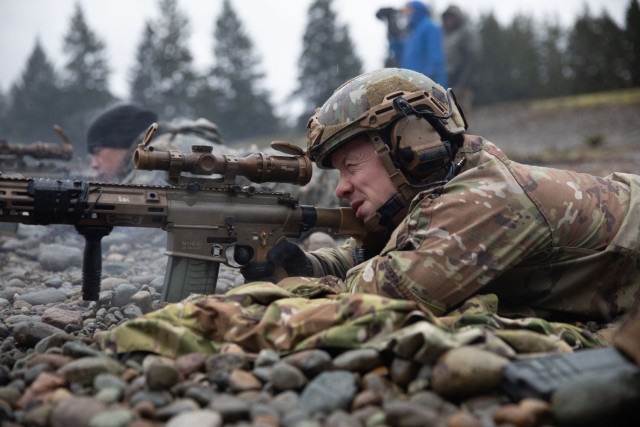
“One thing I have done with the M110A1 in my platoon is assigned it as a primary weapon system for my weapons squad leader,” said Sgt. 1st Class Tylor Anderson, an infantry platoon sergeant with Alpha Company, 1st Battalion, 161st Infantry Regiment, 81st Stryker Brigade Combat Team, Washington National Guard. “This means that he is utilizing the same caliber as his machine gun teams, forcing him to ‘think’ in 7.62 more consistently when planning for enemy engagements.”
The MK22 PSR, set to replace the Army’s existing M2010 and M107 sniper rifles, is outfitted with a modular, multi-barrel design, providing sniper teams with more diversity than its predecessors.
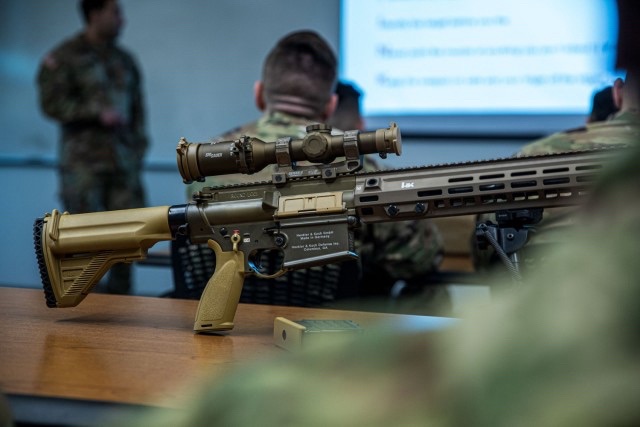
“It definitely improves our versatility when it comes to bringing the right tool for the job when we’re preparing for a mission,” explained Sgt. Remi Milslagle, a sniper with Headquarters and Headquarters Company, 3rd Battalion, 161st Infantry Regiment, 81st Stryker Brigade Combat Team. “We need to out-range enemy snipers, and we need ammunition that’s going to put holes through newer and stronger armor at those ranges.”
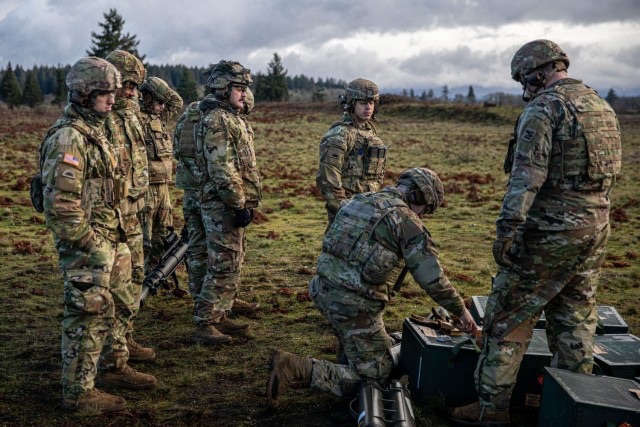
The M3E1 MAAWS, sometimes referred to as the “Carl Gustaf,” is an 84 mm lightweight, man-portable, direct-fire recoilless rifle, which is an upgrade from the AT4. It can fire a wide range of munitions effective against light and medium armor, personnel in open bunkers, and structural targets up to 1,300 meters.
“The AT4 with its ‘one-and-done’ loadout is not as adaptable as the M3,” said Staff Sgt. Dustin Davis, a section sergeant with Bravo Company, 1st Squadron, 82nd Cavalry Regiment, 81st Stryker Brigade Combat Team, Oregon National Guard. “The variety of munitions the M3 has proves it to be a very adaptable weapon.”
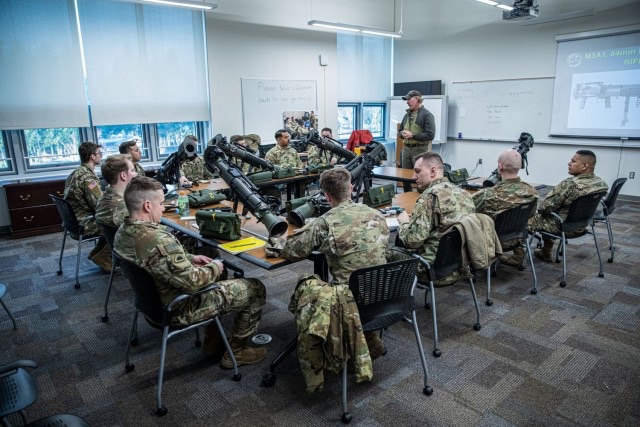
Fielding new weapons allows team leaders to gain knowledge and experience. It enables them to develop as weapons experts and take their newly honed skills back to their organization to train other Soldiers on operating and maintaining their new weapons systems effectively and safely.
As they become more familiar with the new weapons, they can develop and implement standard operating procedures for the additions to their arsenal.
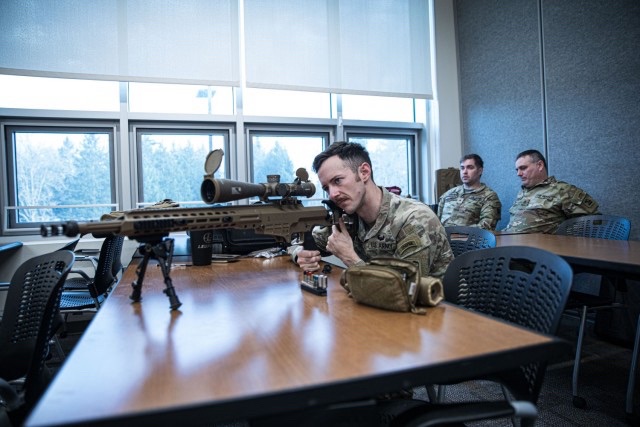
“Soldiers can look forward to getting experience with these platforms and developing unit-level SOPs on how they are employed,” said Anderson. “Training is paramount when it comes to staying ahead of potential adversaries in combat. By adding newer and more capable tools to our arsenal, we allow technology to help us consistently maintain that edge on the battlefield.”
By SFC Nicolas A. Cloward, 122nd Theater Public Affairs Support Element
You can skip to the end and leave a response. Pinging is currently not allowed.


